Open Mainframe Project Summer Mentorship Series: Midterm Updates – At this midpoint, our selected mentees are reporting in. Below, you’ll learn what they’ve built, the challenges they’ve overcome, and their goals for the rest of the summer. We’re proud of every contribution and eager to see what comes next. Hear from Tasneem Mohammed, Cairo University, Egypt below.
Where It All Began
It all started when I stumbled upon a tweet from a mentor talking about his program on LFX. At that time, I was desperately searching for any online mentorship program I could find. I was still new to all of this. I hadn’t contributed to GSoC, I always felt I wasn’t good enough for it. But this time, I really wanted to break out of that cycle of thinking,“Oh well, I won’t get selected anyway,” and just moving on with life. I believe in signs and that tweet? It felt like my sign.
I started digging into LFX. Honestly, it was a bit overwhelming at first. I hadn’t heard much about it from anyone in my circles. Still, I browsed the projects. But when I saw them… they were completely outside my tech stack. I closed the site, thinking, “Maybe next time.”
But that spark inside me, the eagerness to dive into open-source and actually make an impact, just wouldn’t let me rest. Every morning, I’d find myself back on the LFX site, refreshing, scrolling through the projects again. Until one day… OMP released their projects. And there it was Galasa. I immediately shared it with my best friend, and she said exactly what I needed to hear: “That’s your hidden gem.” (Okay, maybe not exactly hidden, but still.)
I started researching Galasa, ready to jump in, join the Slack, and start contributing. But then, life happened. Some tough personal stuff knocked me completely off track. I was already “late” to start contributing, and it took everything I had just to get back on my feet.
Eventually, I pulled myself together, wrote my cover letter, polished my CV, and submitted my application. Then I finally opened the Slack channel, introduced myself, and started the journey.
And then, right in the middle of my final exams, I got that email. I was selected.
No, I’m not crying. (Okay, maybe just a little.)
What is Galasa?
Galasa is an open-source testing framework that helps you easily test complex systems whether they’re running on the cloud, mainframes, or both. It’s designed to run tests locally on a developer laptop, or pipeline, or delegate the running of the test to the Galasa kubernetes-hosted service, where each test connects remotely to the system being tested.
Galasa actually started as an internal IBM tool. Later, IBM realized it could be helpful for others too, so they turned it into an open-source project. Now, it’s maintained under the galasa-dev organization.
My Project: Galasa’s Missing Piece
The one missing piece was actually a web-based user interface that allows users to view test results, artifacts, and run logs making it easier to diagnose problems without having to download huge files to local machines. And guess what? This was the task I took on! In my last meeting, my mentor mentioned that he already started using it, and it’s been really helpful (seems like it started doing its job!).
Getting Started: My First Steps
At first, I had to build the project locally and get familiar with the codebase by working on a simple task, that became my very first merged PR! After that, I moved on to introducing new features and pages to the UI, working alongside the team. Building new features and discussing them with the team has been super interesting. Proposing my ideas for the architecture and getting their feedback made me feel even more engaged and involved.
Honestly, I was a bit nervous at first as it was my first time in a professional work environment. The project follows an agile development process, so attending the daily scrum meetings and actively participating with the team became something I really appreciated. I never felt like an outsider or that it was hard to fit in. The team has been incredibly supportive, welcoming and honestly, I already love working with them!
Our Current Progress
Right now, we’re mainly focused on delivering the Test Runs page, where users can view and filter test runs easily. We’re currently working on improving it for a smoother and more seamless user experience.
Every week, we’re pushing new changes, adding features, fixing issues, and polishing the flow. Here are some of the highlights I’ve worked on so far:
- [#112] A feature flag system was introduced to control experimental features safely, allowing gradual rollouts without affecting all users.
Side Note:
This was honestly one of the most interesting features I worked on! Here’s a draft diagram I sketched to explain how it works:
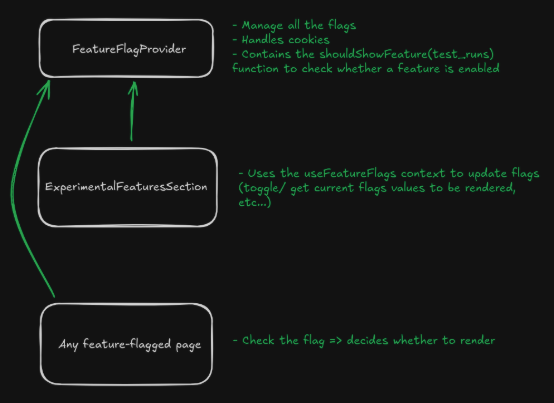
Feature Flag Flow Diagram – Shows how flags are managed, toggled, and consumed across the app.
- [#116] Linked the test runs list to detailed pages with proper data fetching.
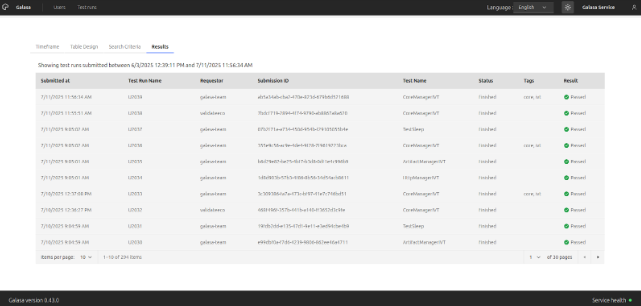
- [#125] An interactive timeframe filter was added, allowing users to quickly select date and time ranges to narrow down test runs.
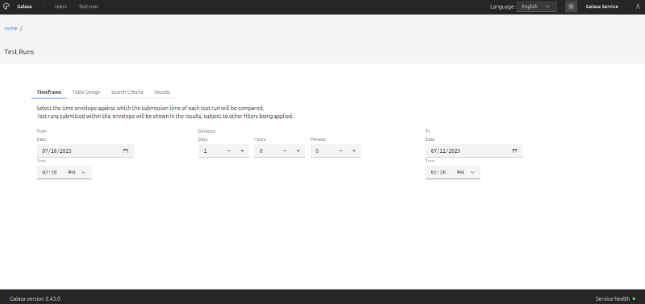
- [#129] Advanced search options were added to filter test runs by status, requestor, tags, and more. The filters update the results instantly and also update the URL, making it easier to revisit or share specific searches later.
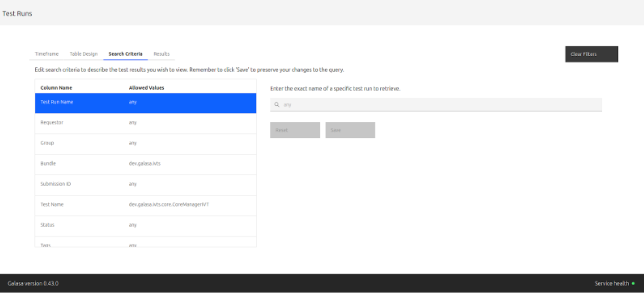
- [133] A drag-and-drop interface was developed for customizing the test runs table. Users can reorder columns, hide or show specific ones.
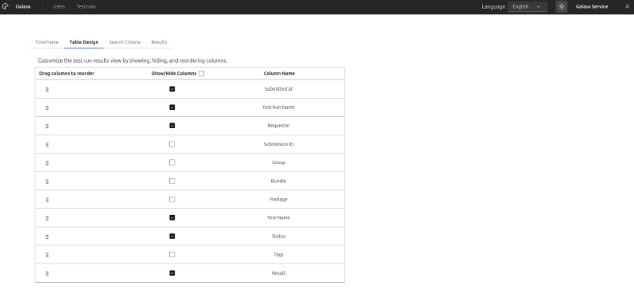
All these changes go through code reviews and unit testing before merging. Honestly, seeing the Test Runs page slowly shaping up with each PR feels amazing. It’s been a great learning experience to collaborate with the team and watch this feature grow week by week!
Final Words
This is just the start! It makes me so happy to see the Web UI slowly taking shape, and I’m honestly excited to keep adding more and more features to it. The first half of the program has been really great. I’ve learned so much already, and I’m even more excited for the second half. (Time flies, really!)
Huge thanks to my mentors, Mike Cobbet and Eamonn Mansour, for their patience, constant guidance, and for tolerating my code reviews! I’m learning a lot from them, not just about code, but also about collaboration, communication, and how things actually work in a real open-source project. I can’t wait to see how this journey continues, and hopefully, I’ll look back at this post someday and think, “Wow, that’s where it all started!”